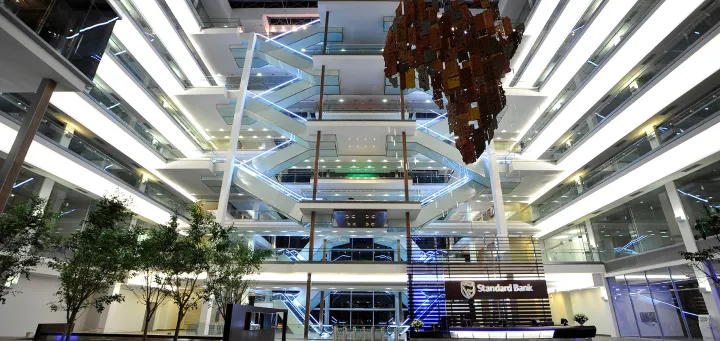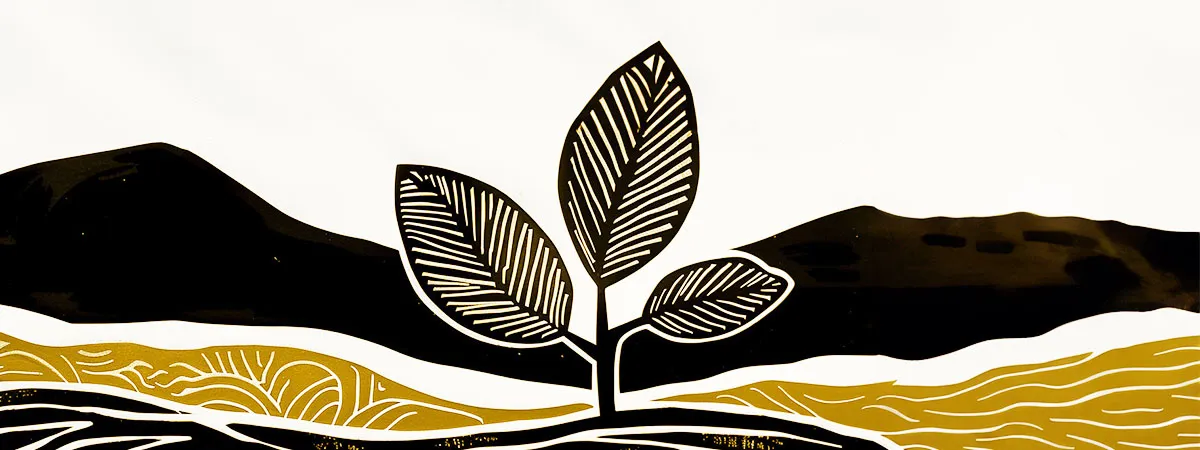BUSINESS REFLECTION
After the Bell: SA miners are by no means earning the ‘slave wages’ asserted by Amcu’s Mathunjwa

Labour is understandably angry about the tragedy, which was the worst mining disaster in South Africa in decades. But that is no excuse to spout lies about the economic circumstances of the men who perished or the industry they worked for.
At the recent memorial for the 13 men who died in a conveyance lift disaster at Impala Platinum’s (Implats’) Rustenburg mine, Joseph Mathunjwa, the president of the Amcu union, made the following scathing remarks:
“These platinum mines are making trillions at the expense of black mine workers. Those workers who perished in that conveyancer received a wage-slave salary.”
Both of these assertions are demonstrably false. Spreading such distortions to advance an agenda at a memorial to honour and remember the dead is crass and offensive opportunism.
Labour is understandably angry about the tragedy, which was the worst mining disaster in South Africa in decades. But that is no excuse to spout lies about the economic circumstances of the men who perished or the industry they worked for.
According to Implats — and Mathunjwa is welcome to challenge these numbers, though he is presumably well aware of them — until the end of the 2023 financial year in June, the average remuneration package for rock-drill operators (RDOs) was R310,000 annually, or almost R26,000 a month.
This excludes top-ups such as production and profit share bonuses, dividends that accrued through an employee share scheme, and overtime pay.
For scraper winch operators, the average annual remuneration package was R290,000 annually.
Seven of the men who died were RDOs, while four were scraper winch operators.
Their annual remuneration packages would have placed them, by some estimates, in South Africa’s high-income category. For example, the FNB/BER Consumer Confidence Index classifies high-income households as those who earn R20,000 or more a month.
That may be a questionable income classification. But the fact is that, by South African standards, Implats mine workers are making a decent wage. The average monthly salary for teachers and police officers is closer to R20,000 a month.
It is by no means a “slave wage”.
If Mathunjwa really thought that was the case, one wonders why Amcu agreed to a five-year inflation-linked wage settlement with Implats last year — an agreement reached without a tool being downed.
Read more in Daily Maverick: Amcu’s Mathunjwa has a strong message for Sibanye ahead of wage talks
One reason for that strike-free settlement was no doubt the fact that Implats and other South African major mining companies have, for at least the past two decades, agreed to above-inflation wage settlements with unions.
This growth in real wages is surely testimony to Amcu’s success. We are a long way from the dark days of the Marikana massacre in 2012 when the Amcu rallying cry was R12,500 a month.
Data provided to Daily Maverick last year by Sibanye-Stillwater — which now owns the Marikana mine — show that from 2013 to 2021, wages for entry-level workers at Marikana climbed by just over 90%, while cumulative CPI was 45.7%. That represents real wage growth of almost 45% over that period.
The decline in labour militancy — most of South Africa’s platinum group metals (PGMs) industry currently has multiyear wage agreements that were reached without any strike action — is surely linked to these trends.
The grandfathers and fathers of the 13 men who died on 27 November at the Rustenburg mine would have indeed toiled for “slave wages”, to use Mathunjwa’s ahistorical terminology. (Slave labour by definition is unpaid labour.)
Most of them were from the Eastern Cape and Lesotho, which for decades provided the mining sector with a rural migrant labour force that was subjected to ruthless exploitation.
Read more in Daily Maverick: How the twilight of SA’s migrant labour system spawned a social apocalypse
For decades, the real wages of migrant miners declined or stagnated, delivering rich dividends to the Randlords who cared little about black lives. Since industrial-scale mining began in South Africa in the late 19th century, more than 80,000 mine workers have been killed and over a million injured, according to Minerals Council SA data.
That does not include the untold number who died from occupational diseases such as silicosis.
But South Africa’s mines are no longer death traps. I have written and reported extensively over the years about the dramatic improvements in mine safety, which saw a record annual low of 49 deaths in 2022.
The same social, political and economic forces that have driven up wages have also driven down mine deaths. In the 21st century, investors don’t want their dividends drenched in blood, and they increasingly want workforces to be treated equitably.
Some critics (including those who still don’t mind a bit of ruthless exploitation for profit) deride this as “woke capitalism” — the term of art is ESGs or environmental, social and governance concerns — but it’s a thing.
One consequence is that South Africa’s overwhelmingly black mining labour force is no longer subjected to apartheid indignities and is far better paid for much safer work.
The mining sector — also, in part, because of these positive trends — is not a licence to print money.
This brings me to Mathunjwa’s other blatant falsehood — that “these platinum mines are making trillions at the expense of black mine workers”.
Trillions? Seriously?
Two years ago, South Africa’s PGM producers were making record profits from record prices, but we are talking tens of billions of rands here, not trillions. And the industry for the previous decade was barely profitable and often lossmaking.
The subsequent collapse of prices under the combined weight of a fragile global economic recovery and the rise of electric vehicles means most PGM shafts in South Africa are probably again lossmaking or breaking even.
Of course, none of this absolves Implats and its executives from being held accountable for this tragedy. An investigation is under way to determine why the conveyance cage reversed suddenly from its ascent into a rapid and bone-shattering descent.
This probe will hopefully cast the light of truth into the darkness of the shaft in which the men died.
That is surely one way to honour them and bring some justice for their families: the truth. DM



















And this is why the unions in SA MUST be disbanded
OMW R26k / month plus drilling bonuses
So much for my R320 basic back in ’75 as the miner in charge 🙂
That said , it was a return trip to the UK 🙂
Back then it was hard to find a South African underground 🙂
As for what happened in the accident , must be well known to those involved by now !
I was in a cage that survived something similar .
Why the delay , seriously not ‘ Rocket Science’ !
Possible scenario , opposite cage got stuck , somehow hoist driver noticed ! Too many details !
To get the live cage to the surface , driver has to ‘ de clutch ‘ the hoists , fairly routine .
Not ! With passengers !
So when it happens as it did with me , you know you are in trouble , not a thing you can do about it 🙂
As for the ‘Unions’ , the ‘leaders ‘ do well , when was the last time they went underground .
Where did Cyril get his mining experience ? I was a regular underground at Marikana .
Back then the MWU , all white of course was useless , just getting the R10 / month union dues .Had 2 small spats .
Wonder what the AMCU fees are today ?
Mining at any depth is dangerous .
You think rock is solid , wrong !
seen it like a marshmellow , after a siesmic event !
Before that at Kloof , rattled Potch !
And just for fun , an half empty/ full explosive truck went bang just outside Westonaria , blowing in a few windows .
We had our own ‘ big hole’ , no casualties !
Unions should be forced to make their finances public once a year. This should include the cost-to-union of the upper managment. If this is not done in 2 months after their financial year end the Union must be deregistered as a union. I am sure that once the average worker sees what the union management take home they will feel even more exploited by them than by their employers.
I honestly dont think a min of 20K/month even before deductions is thaat bad, it cant be a slave wage.
However, mining houses as a collective can do more for the communities where they derive their income.
Unions and executives in any company should try by all means to foster good relations, no use calling each other names or being populistic or doing anything in your power to exploit people, boards must have shareholder reps, exec reps, union reps and community reps, the latter should obviously have their mandate from the community via forums, not government.
Unions in SA are an extension of the SA communist party and are solely interested in politics and grandstanding. Mining example- Having a long career in Mining ,I have never seen a change house facility in SA on a par with the UK ones. The reason? All change houses in the UK were built and financed by the Unions as the coalmine owners saw them as extra expense. The union had the welfare of its members at heart. Not so here. Look at all the MP’s that come from union backgrounds, even our President. Unions in SA are only there to make wage demands and castigate business for making “Profits” on the way to a nice “job” as an M.P. or better, Hello Gwede!
I remember how my grandfather used migrant workers at his brick factory. To me, it is a good case study of the African culture. In the beginning of each year he sent trucks to collect workers in Zim and Moz. They would then stay in hostels on the brickyard. He build separate hostels for Zulus, Xhosas, Tshwanas etc as others there would be fighting over weekends. He provided medical and other services to them. They were paid weekly. He had an incentive scheme for producing more than their daily target. Mo-Thu they produced on target. Fri (payday) they would reach target by 12:00 and then go shopping after receiving pay. But they would never exceed target although this was clearly achievable. At year end, they would all go back home. They were also paid a bonus. The next year, many of them would return. It was also common to find a brother or family member returning, as they took turns to work. They money they earned was enough to support the whole family back home.
I do not understand where the statement of exploitation of labour fits in. Surely migrants were free to go home or work for another company? If they were exploited, why did they keep on returning? And this is the core question relating to unions as well. Surely if miners feel its to dangerous or they get paid to little they could find another job? Why do they need a union for that?
It just shows the incompetence of this moron, each day that goes by we see section 189’s being forced on mining houses due to the increase in wages and the need for lowering of operating cost to just stay in business. Do we collapse the mining industry in South Africa for the greedy few? More truck drivers, police officers etc. have a much higher probability of dying on the job for a much lower salary. I work on the mines an the actual salary with benefits is on average closer to R40 000 per month. Yes, work conditions aren’t great, but with an unemployment rate at one the highest in the world, this is a massively higher than average salary and most definitely a livable wage at worst. I just wish the sense of entitlement this country has and the pure sense of utter ignorance this country has when it comes to sustainability of employment would be comprehended and understood. We are the rainbow nation, this has nothing to do with race and the use of it as a form of enticement should be shunned by every citizen in South Africa.
Market forces will deal with militant AMCU!
The Zama Zamas workers produce gold without any FATCAT unions or their mine bosses.
Watch this space!